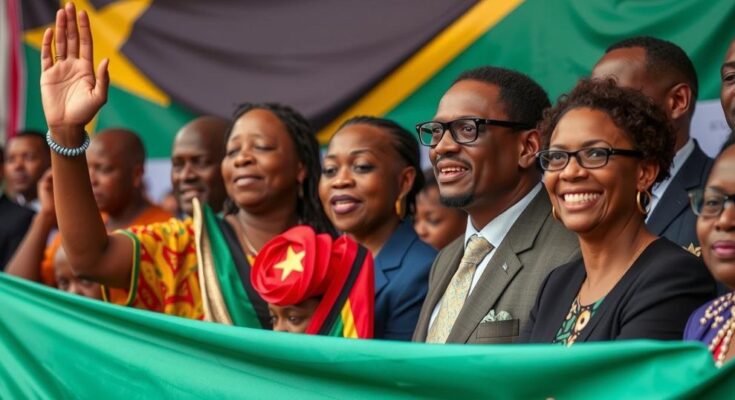Mozambique’s highest court confirmed Frelimo party’s electoral victory, validating Daniel Chapo’s 65% of the vote. Tensions escalated in Maputo following the ruling, with protests leading to significant violence and discontent among opposition parties. The situation is complicated by recent natural disasters affecting the nation.
The Constitutional Council of Mozambique has upheld the results of the contentious October elections, reinforcing the Frelimo party’s dominance in the nation for over five decades. The court confirmed that Daniel Chapo, Frelimo’s candidate, received 65 percent of the votes, a decrease from the National Electoral Commission’s initial report of nearly 71 percent. The second-place contender, Venancio Mondlane of Podemos, was acknowledged to have garnered 24.19 percent, while Ossufo Momade from Renamo and Lutero Simango of MDM received 6.62 percent and 4 percent, respectively.
Despite the ruling, which dismissed calls for a recount by Podemos as well as requests for new elections from Renamo and MDM, tensions have escalated across the capital, Maputo. Following the court’s decision, businesses shuttered and roads leading into the city were barricaded by law enforcement. These developments occurred in the context of ongoing protests triggered by allegations of electoral misconduct, which have resulted in significant violence, with over 100 reported fatalities during the past two months. Mondlane, now in exile due to safety concerns, declared intentions to instigate a popular uprising if the verdict favored Chapo.
Chapo, soon to be inaugurated as Mozambique’s first president born post-independence and without a history as a Frelimo combatant, faces scrutiny over his political inexperience. Observers express concerns that the court’s decision may incite further unrest. Particularly worrying is the reported crackdown on civil liberties, which has involved the government restricting internet access and social media platforms, contributing to an already volatile situation. Additionally, the region is reeling from the aftermath of Cyclone Chido, which claimed at least 120 lives last week.
Mozambique has a history of political tension and violence, particularly surrounding elections. The recent election was marked by accusations of fraud, and growing discontent among opposition parties has led to unrest in the country. Frelimo, the ruling party since Mozambique’s independence from Portugal in 1975, has faced challenges from various opposition factions, escalating tensions within the political sphere. The court’s decision comes in the wake of significant public dissatisfaction and demonstrators’ fears of escalating violence if the situation remains unresolved.
The ruling by Mozambique’s Constitutional Council has entrenched the ruling Frelimo party’s position amid increasing national unrest and allegations of electoral misconduct. With the opposition asserting that the election was fraudulent, and protest activity rising, the likelihood of further disturbances remains high. Furthermore, Chapo’s administration will be scrutinised as it navigates this delicate political landscape while dealing with the aftermath of significant natural disasters.
Original Source: www.rfi.fr




